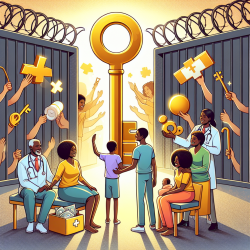Incarceration impacts not just the individual but their entire family. The transition from incarceration back to family life can be complex, with numerous barriers that can impede the therapeutic process. Here are some of the key takeaways from the research and how practitioners can implement these insights to improve their practice:
Understanding Barriers to Family Therapy
The research identifies several attitudinal, relational, and logistical barriers that families post-release face when seeking therapy. These include:
- Stigma and Shame: Families often feel stigmatized due to their association with the carceral system, which can lead to reluctance in seeking therapy.
- Logistical Challenges: Practical issues such as transportation, scheduling conflicts, and financial constraints can hinder access to therapy.
- Therapist Bias: Therapists may unconsciously harbor biases or lack cultural competence, which can affect the therapeutic relationship and outcomes.
Pathways to Effective Family Therapy
To combat these barriers, the research suggests several pathways that therapists can adopt:
- Building Trust: Therapists should work on creating a non-judgmental and supportive environment to help families feel safe and valued.
- Cultural Competence: Enhancing cultural competence through ongoing education and self-reflection can help therapists understand and respect the unique experiences of post-release families.
- Flexible Scheduling: Offering flexible scheduling options and teletherapy can make therapy more accessible for families with logistical constraints.
- Community Resources: Connecting families with community resources can provide additional support and reduce the burden of logistical challenges.
Encouraging Further Research
While the research provides valuable insights, it also highlights the need for further exploration in this area. Practitioners are encouraged to stay informed about the latest research and to contribute to the growing body of knowledge through their own studies and experiences.
By implementing these strategies and staying committed to continuous learning, therapists can play a crucial role in helping families navigate the complexities of post-release life and build healthier, more resilient relationships.
To read the original research paper, please follow this link: Families post-release: Barriers and pathways to family therapy.










